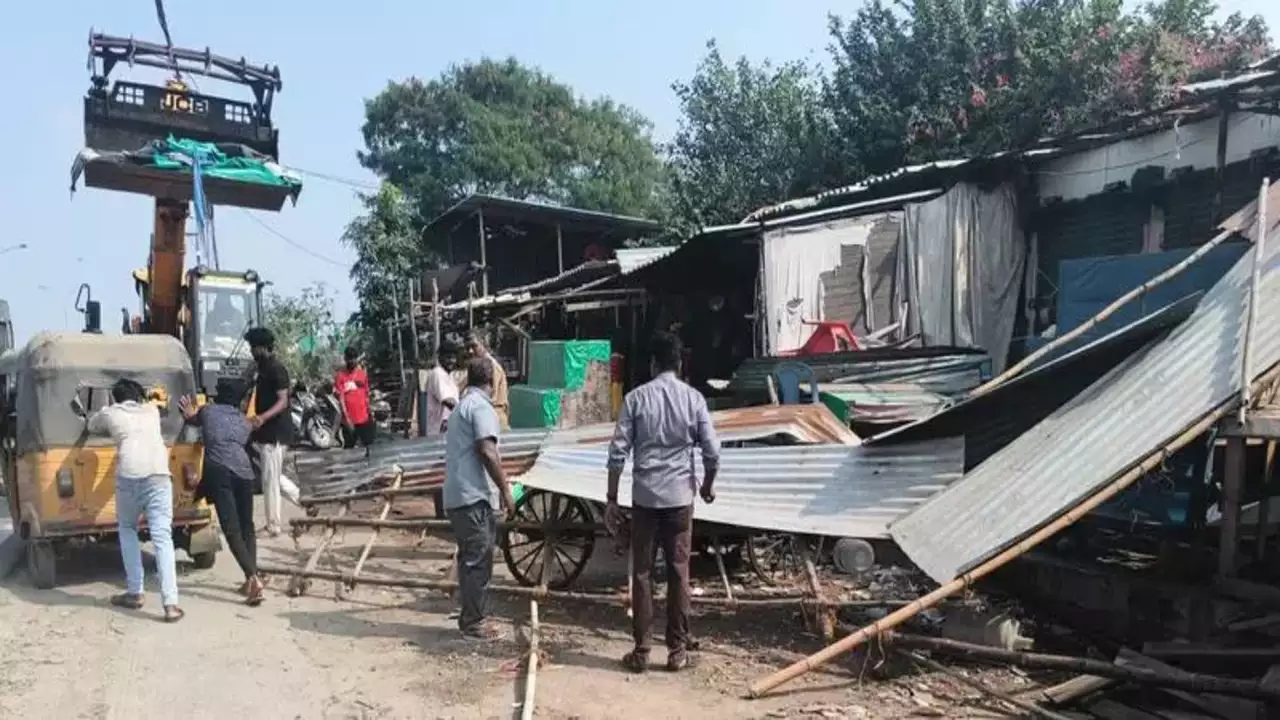GCC Clears Encroachments on Sardar Patel Road Amid Pedestrian Woes
In a decisive move against unauthorised street vending, the Greater Chennai Corporation (GCC) dismantled encroachments set up by flower vendors along Sardar Patel Road in Adyar. The drive, conducted on Thursday, targeted makeshift stalls that had gradually expanded over the years, occupying the service road and causing inconvenience to pedestrians and commuters. Officials cited repeated complaints from residents and road users as the primary reason for the action, underscoring the need for urban spaces to be equitably accessible.
The encroachments, originally confined to a few stalls near the Fortis Malar Hospital bus stop, had proliferated to an extent where they disrupted pedestrian movement and obstructed the boarding of Metropolitan Transport Corporation (MTC) buses. This forced the civic body to intervene and provide alternative vending zones near the old Adyar Bridge. However, many vendors continued to operate illegally, exacerbating congestion and increasing accident risks. In a three-hour-long operation, authorities used welding equipment to dismantle iron-supported structures and deployed earthmovers to clear the makeshift thatched roofing. A total of 32 unauthorised shops were removed in the process.
A Balancing Act Between Livelihoods and Public Spaces
While the removal of encroachments has been welcomed by many residents, concerns remain over the displacement of street vendors who rely on these spaces for their livelihood. The challenge for urban planners is to strike a balance between maintaining orderly public spaces and ensuring the economic survival of informal traders. Several cities across India, including Bengaluru and Mumbai, have faced similar challenges, where attempts to remove street vendors have led to strong pushback from the affected communities. Experts suggest that a long-term solution would involve designated vending zones with proper facilities, ensuring both compliance and inclusivity in urban development.
A Sustainable Approach to Street Vending Policies
From a sustainability perspective, the frequent cycle of eviction and reoccupation of public spaces highlights a deeper urban planning issue. Instead of periodic clearances, city authorities could adopt structured policies, incorporating vending zones with adequate infrastructure, as seen in global examples like Singapore’s hawker centres. Such a model could provide vendors with a stable source of income while preventing uncontrolled encroachments. Without sustainable urban planning, street vending will continue to be a recurring challenge, placing strain on both vendors and the urban ecosystem.
Ensuring Long-Term Compliance and Urban Order
Residents have expressed relief following the clearance drive but stress the need for long-term enforcement to prevent re-encroachment. Many similar unauthorised setups continue to occupy public spaces in Adyar, along Elliot’s Beach, and in Thiruvanmiyur, raising broader concerns about Chennai’s public space management. Civic authorities must enforce stricter regulations while simultaneously offering alternative solutions to affected vendors. If left unaddressed, the issue of street encroachments will not only impact traffic and pedestrian safety but also hinder the city’s efforts toward sustainable urban development.


